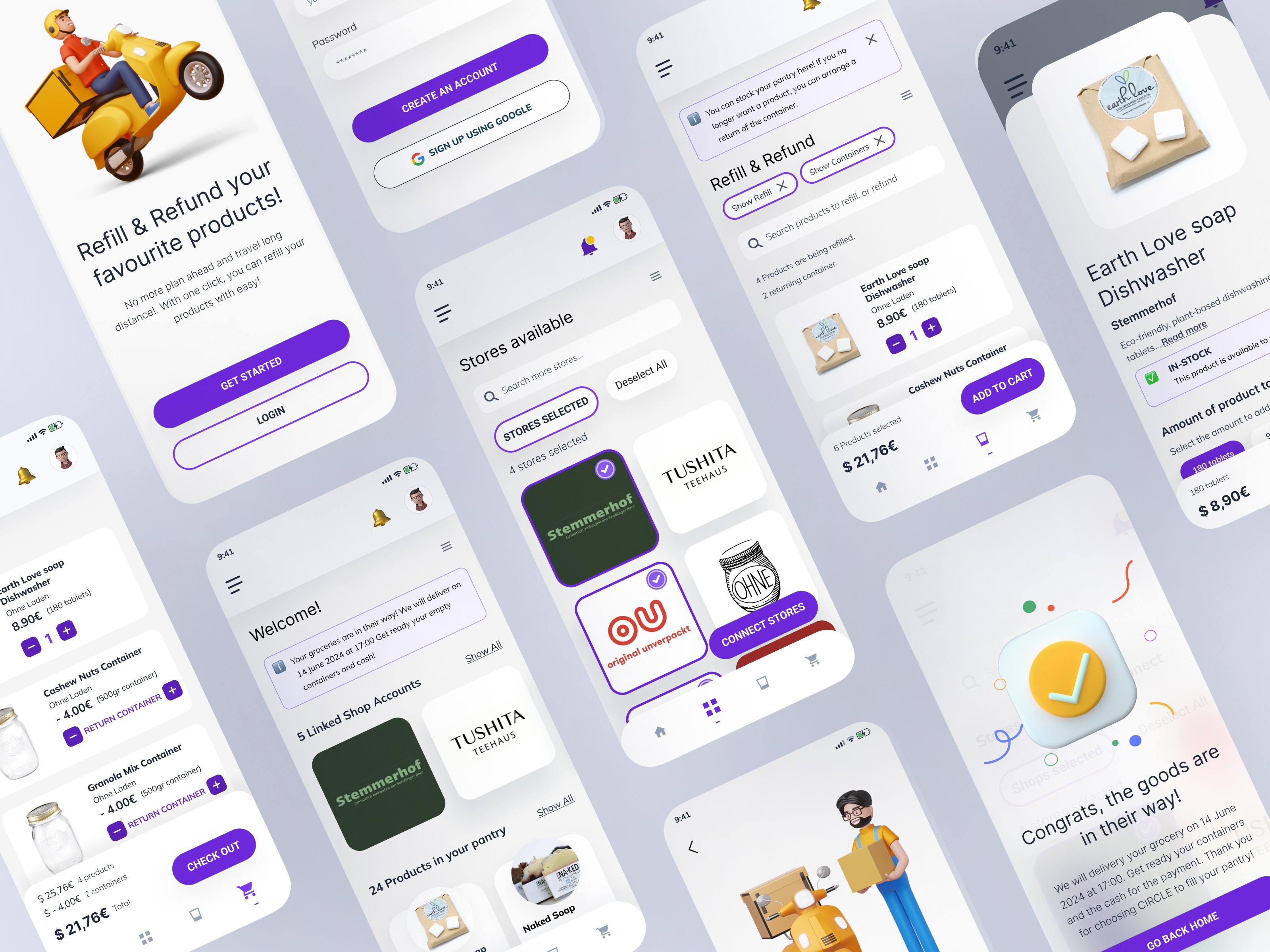Unlocking Sustainable Convenience

CIRCLE
Circle simplifies zero-waste living by connecting you with plastic-free shops in Munich. Browse their curated selection of sustainable shops and enjoy convenient, eco-friendly delivery right to your door. Embrace a greener lifestyle effortlessly with Circle.
Completion Date
March 2020
Role
UX UI Designer
Team
Project manager, 2 UXUI Designers and 2 developers
Deliveries
Personas, Empathy map, Site map, User Flow, Sketches, Wireframes, Prototype, Mockups, UI Kit
01 — THE CONTEXT
Munich strives to be zero waste by 2025, eliminating single-use plastics. It implements sustainable procurement, reduces plastic usage, and collaborates with businesses. The city offers various zero-waste shops with package-free, eco-friendly products.
02 — THE PROBLEM
Visiting multiple zero-waste shops with reusable containers is time-consuming and inconvenient. Juggling different locations, bringing right containers, coordinating schedules, and ensuring you have them on hand throughout your day can quickly become a logistical challenge.
03 — THE SOLUTION
Circle bridges the gap between eco-consciousness and modern convenience. Simplifies zero-waste living by connecting consumers with local zero-waste shops. It offers plastic-free delivery and an easy refill service, making sustainable products accessible and convenient for all.
03.1 — HOW IT WORKS?
How might we help people enjoy and interact with art while maintaining a safe distance from each other due to COVID-19 and while the museums are still closed?
04 — THE PROCESS
04.1 — EMPATHISE
In the very first stage of the project we had lacking of understanding peoples wants, needs and expectation.
The were three key questions that we wanted to answer:
Current frustrations and pain points?
What did they really want?
What did they really need?
04.1 .1 — RESEARCH
Dived into an intensive 2- week research sprint:
Investigated forums, Facebook groups and reddit to know more about the topic
11+ user interviews
UX Shadowing: going to zero waste shops to observe how people behave and interact with the environment.
This will help us understand more about the inconvenience or not, of zero-waste lifestyle and find some potential problems we found in the secondary research on the interviews.
04.1 .2 — INTERVIEW INSIGHTS
After talking with people and observing them buying products in zero-waste shops, we figured out that carrying on the containers is a potential problem.
🤔 Amalia Perez said: "To live with minimal waste, I have to do much planning, need to carry on my containers to the shops and need a few days because there are so far away"
😣 Lisa Muller said: "There are not enough plastic-free shops. I have to take the containers to work, go to different stores, waste time doing long travels from one shop to another."
05 — CONCEPTUALISE
In the very first stage of the project we had lacking of understanding peoples wants, needs and expectation.
The were three key questions that we wanted to answer:
Current frustrations and pain points?
What did they really want?
What did they really need?







